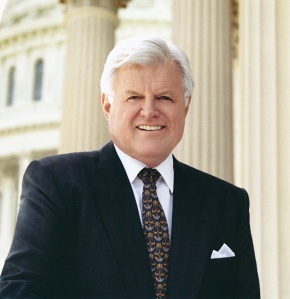Did Social Media Lose Ted Kennedy’s Senate Seat?
 The big news in politics yesterday was the contest for Ted Kennedy’s vacant Senate seat in Massachusetts. Kennedy held the seat for a number of decades, but the race turned out to be quite tight in the ordinarily “blue” state.
The big news in politics yesterday was the contest for Ted Kennedy’s vacant Senate seat in Massachusetts. Kennedy held the seat for a number of decades, but the race turned out to be quite tight in the ordinarily “blue” state.
On Monday, the Huffington Post suggested it could come down to effective use of social media.
So it’s fascinating to watch Martha Coakley’s campaign for U.S. Senate in Massachusetts basically ignore new media in favor of the old playbooks that elected Ted Kennedy to the seat.
Of course there is much more to the race: Politics and platforms and personal connections are important. But didn’t Obama for America teach us that the Web has the power to push a candidate over the top? Obama also showed the importance of young people (whose communications of choice is digital).
Much like I did the other day, the author credits Barack Obama’s win in 2008 to effective use of technology; particularly Internet based technology. He went forward with some social media numbers;
As I compare the morning before election day, @MarthaCoakley has 3,520 Twitter followers compared to @ScottBrownMA with 10,214 followers. Coakley counts 14,487 Facebook fans to Brown’s 76,700 fans. Advantage Brown by more than three to one.
Brown didn’t win the election with a three to one margin, but he did win. Now both sides are trying to figure out why.
Brown won 52 percent to 47 percent. Turnout was exceptional for a special election in January: More voters showed up at the polls Tuesday than in any non-presidential general election in Massachusetts since 1990.
The Huffington Post credits Brown’s social media campaign and points out Coakley pretty well ignored the opportunity.
How do college students communicate? Facebook and SMS of course! Yet these two forms of communications played absolutely no formal part in the rally. The brochure that was handed out had no web addresses or social media sites. At the rally, Coakley fans were asked to vote. They were asked to volunteer at phone banks. They were asked to talk to neighbors and friends.
But were the many college students in the crowd told to talk up the Coakley campaign on Facebook, the college student communications tool of choice? No. Were people at the rally asked to tweet? No. Were they asked to join Coakley’s fan page? No.
The Coakley campaign is underestimating the importance of social media and the new rules of marketing and PR.
That strategy looks like a blueprint for political social media campaigns. Ask and you shall receive.
This is a valuable lesson moving forward for political campaigns of all stripes. In Utah, Democrats are seeking to unseat a non-elected Republican governor and gain the statehouse for the first time in 30 years. If social media is any barometer, Peter Coroon’s vibrant Facebook page is out polling Herbert’s ghost town of a page 2,368 to 219. One of these candidates “gets” social media. One doesn’t. Guess who I think will win in November, despite the perceived odds? If Massachusetts can elect a Republican to replace Ted Kennedy, a Democrat leading the state of Utah isn’t farfetched.
The rhetoric is heating up on both sides after Tuesday’s loss in Massachusetts. In an email sent out today to Democrats, Mitch Stewart wrote,
Yesterday’s disappointing election results show deep discontent with the pace of change. I know the OFA community and the President share that frustration.
We also saw what we knew to be true all along: Any change worth making is hard and will be fought at every turn. While it doesn’t take away the sting of this loss, there is no road to real change without setbacks along the way.
On the other side, Republicans are crediting the win to voter discontent with the new Presidential administration and the healthcare debate. I submit, it’s the effective communication of issues and platforms to voters and TV ads and robo-calls are not the way to do it any more. Advertising is advertising whether you’re a small business, big business or political business. If the old way of advertising is failing for businesses, it’s going to fail for you too.
People are fearful of change. They don’t like change. In today’s advertising world, change is social media. Don’t be afraid of social media, embrace it. They say Google is your friend. I say Facebook and Twitter are too.






Visitor Comments: